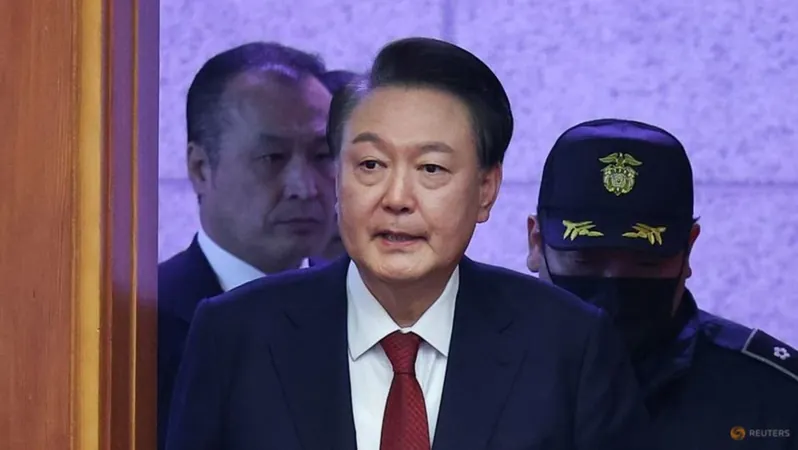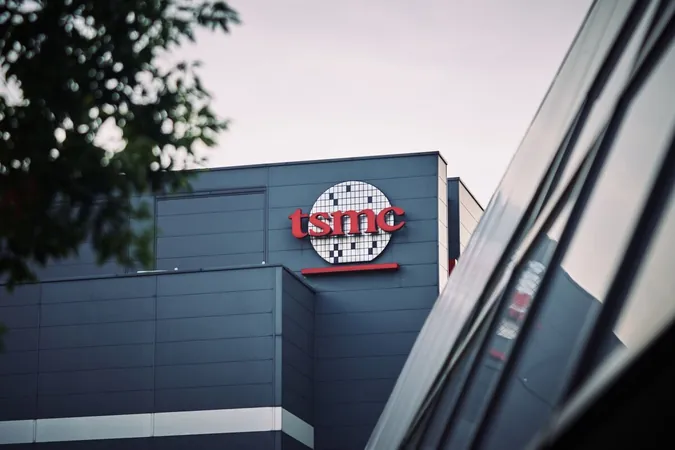
South Korean Investigators Push for Criminal Charges Against Impeached President Yoon Suk Yeol for Insurrection and Abuse of Power
2025-01-23
Author: Ming
In a remarkable turn of events that has shaken South Korea's political landscape, investigators have recommended that impeached President Yoon Suk Yeol face charges of insurrection and abuse of power. On January 23, the Corruption Investigation Office (CIO) concluded a 51-day investigation related to Yoon’s controversial declaration of martial law, which was swiftly rejected by the National Assembly just six hours after its announcement.
The CIO's findings assert that Yoon, along with his former defense minister and other military leaders, conspired to undermine the constitutional order of the nation. The declaration, made on December 3, 2023, was alleged to have been a calculated move aimed at suspending civilian rule, ultimately inciting public unrest.
As a significant development, the CIO has officially requested that the Seoul prosecutors file criminal charges against Yoon. Under South Korean law, prosecutors will need to make a determination within 11 days on whether to proceed with formal charges, potentially leading to a trial that could have profound implications for the political climate in the country.
This incident marks a historic moment in South Korean democracy, as Yoon has become the first sitting president to be detained amid a criminal investigation. Yoon was arrested in a dramatic dawn raid, following which he has remained uncooperative with investigators, refusing to participate in questioning. Deputy CIO chief Lee Jae-seung noted that Yoon's security detail has even obstructed efforts to search and seize evidence, including access to critical communication devices.
Currently held in a detention center, Yoon continues to assert his position as president and recently appeared in court regarding his impeachment proceedings. During that appearance, he expressed his views that his martial law declaration was not a failure but simply ended sooner than expected. Meanwhile, former defense minister Kim Yong-hyun, who resigned following the abortive move, testified that Yoon acted reluctantly in declaring martial law, indicating that there were considerable concerns over the legality of such a declaration.
In the courtroom, political tensions flared as Yoon questioned Kim about the specifics of the martial law draft. Lawmaker Choi Ki-sang raised concerns that Yoon’s direct questioning strategy could influence witness testimonies, suggesting that the court should regulate such confrontations more closely.
Yoon’s legal team is pressing for a thorough investigation that upholds the principles of legality and due process. If the Constitutional Court rules against him, Yoon will formally lose his presidency, triggering elections within 60 days.
Notably, the CIO’s investigation uncovered that Yoon allegedly coerced police and military personnel to undertake roles beyond their statutory obligations. He is also accused of obstructing lawmakers’ rights to challenge the martial law, underscoring the gravity of the charges he faces.
As South Korea grapples with this unprecedented political crisis, the outcomes of the investigations and subsequent legal proceedings could forever alter the trajectory of the nation's democracy. The situation remains fluid, with many watching closely as the judiciary navigates this highly charged political scenario. Stay tuned as we continue to follow this developing story!




 Brasil (PT)
Brasil (PT)
 Canada (EN)
Canada (EN)
 Chile (ES)
Chile (ES)
 Česko (CS)
Česko (CS)
 대한민국 (KO)
대한민국 (KO)
 España (ES)
España (ES)
 France (FR)
France (FR)
 Hong Kong (EN)
Hong Kong (EN)
 Italia (IT)
Italia (IT)
 日本 (JA)
日本 (JA)
 Magyarország (HU)
Magyarország (HU)
 Norge (NO)
Norge (NO)
 Polska (PL)
Polska (PL)
 Schweiz (DE)
Schweiz (DE)
 Singapore (EN)
Singapore (EN)
 Sverige (SV)
Sverige (SV)
 Suomi (FI)
Suomi (FI)
 Türkiye (TR)
Türkiye (TR)
 الإمارات العربية المتحدة (AR)
الإمارات العربية المتحدة (AR)